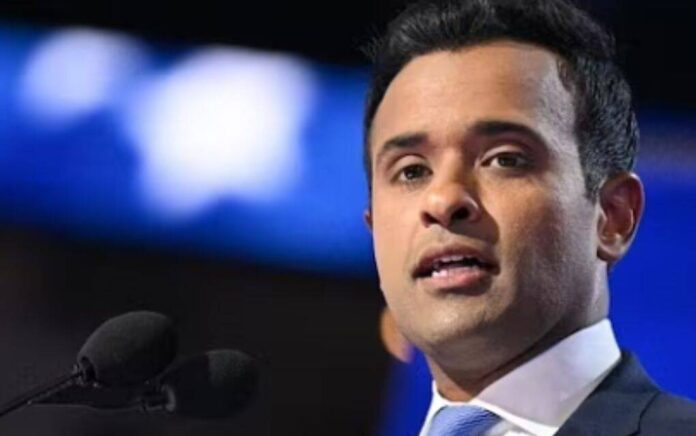
Donald Trump is ready to shake things up in the federal government. He’s sick of how it’s been operated for years now.
And the Washington, D.C. swamp was rocked by a massive threat from the incoming Trump admin.
President-elect Trump’s incoming administration is already generating buzz with its new Department of Government Efficiency (DOGE), co-led by entrepreneur Elon Musk and businessman Vivek Ramaswamy. With Musk vowing to cut $2 trillion in federal spending and Ramaswamy promising that some agencies will be “deleted,” the two have begun outlining where DOGE will target inefficiencies—and where they plan to steer clear.
FOX Business compiled key areas Musk and Ramaswamy have highlighted for reform as they prepare to take action in January.
The first of those key areas is simplifying the tax code.
DOGE set its sights on tax policy early, pointing to the sprawling U.S. Tax Code as a major burden.
“In 1955, there were less than 1.5 million words in the U.S. Tax Code. Today, there are more than 16 million words,” DOGE posted on Nov. 15. “Because of this complexity, Americans collectively spend 6.5 billion hours preparing and filing their taxes each year. This must be simplified.”
Another key area is the Pentagon and it’s persistent problem with failing audits
The Department of Defense (DOD) remains a top concern, having failed its 7th consecutive audit. DOGE noted the Pentagon’s inability to account for its $824 billion budget last month. Musk reacted to the news on X, writing, “Sounds like a job for @DOGE!”
Ramaswamy added that the Department of Education (DOE) and the U.S. Department of Agriculture (USDA) also showed serious deficiencies in their audits, calling the findings “Utterly unacceptable” and adding, “Time for DOGE.”
Outdated programs are also still receiving unnecessary funding according to DOGE. Congress authorized $516 billion in FY2024 for programs with expired authorizations—nearly $320 billion of which lapsed over a decade ago. DOGE flagged this waste as a prime example of the system’s inefficiencies.
And as far as remote work, DOGE has a plan to end that among federal employees.
In fact, DOGE has made eliminating federal telework a priority. Musk and Ramaswamy criticized the Biden administration for extending work-from-home privileges for 42,000 Social Security Administration (SSA) employees for five more years.
Ramaswamy claimed most federal employees rarely show up in person and pointed to thousands of vacant government buildings, which he described as “nuts” and “a job for DOGE.”
Musk cited Sen. Joni Ernst’s findings that “If you exclude security guards & maintenance personnel, the number of government workers who show up in person and do 40 hours of work a week is closer to 1%!”
Federal projects delayed by excessive regulations are another target for DOGE. Musk and Ramaswamy argue deregulation aligns with Trump’s agenda and is essential for speeding up construction and other critical initiatives.
DOGE has also spotlighted the federal government’s reliance on outdated technology, which consumes 80% of its $100 billion annual IT budget. “Not only are older systems more expensive to maintain, but they are also more vulnerable to hackers,” DOGE posted.
Both Musk and Ramaswamy emphasized modernizing IT systems as a major priority, with Ramaswamy calling it part of DOGE’s “to-do list.”
DOGE raised concerns about spending at the National Institutes of Health (NIH), including projects like “Evaluating Microaggressions among Latinx Individuals with Obesity” and “incubation of oxycodone craving in female rats.” Ramaswamy’s reaction: “Return this $$ to the taxpayers.”
With Robert F. Kennedy Jr. tapped to lead the Department of Health and Human Services (HHS), Ramaswamy signaled broad cost-cutting measures under Kennedy’s oversight.
Federal fraud also remains a massive drain, with estimates showing losses between $233 billion and $521 billion annually. Musk’s response was blunt: “Drop the @DOGE hammer.”
And when it comes to spending on foreign aid, longtime critic of federal spending Ron Paul weighed in, urging DOGE to “ELIMINATE foreign aid,” arguing that it unfairly takes money from U.S. citizens to benefit wealthy interests abroad. Musk agreed, promising DOGE will address the issue with “full transparency for the American people.”
Cleaning up the healthcare system’s benefits programs are also a priority for DOGE. While Social Security, Medicare, and Medicaid remain untouchable for now, Ramaswamy clarified that DOGE won’t recommend changes to these programs without voter input. However, he pledged to root out abuse. “Hundreds of billions of dollars [are] flowing out the door… ending up in the hands of people who, even under the statute, should not be receiving those payments,” Ramaswamy said.
As DOGE ramps up efforts to streamline government spending, its leaders have left little doubt: no inefficiency will go unnoticed, and major reforms are on the horizon.
Stay tuned to The Federalist Wire.


















